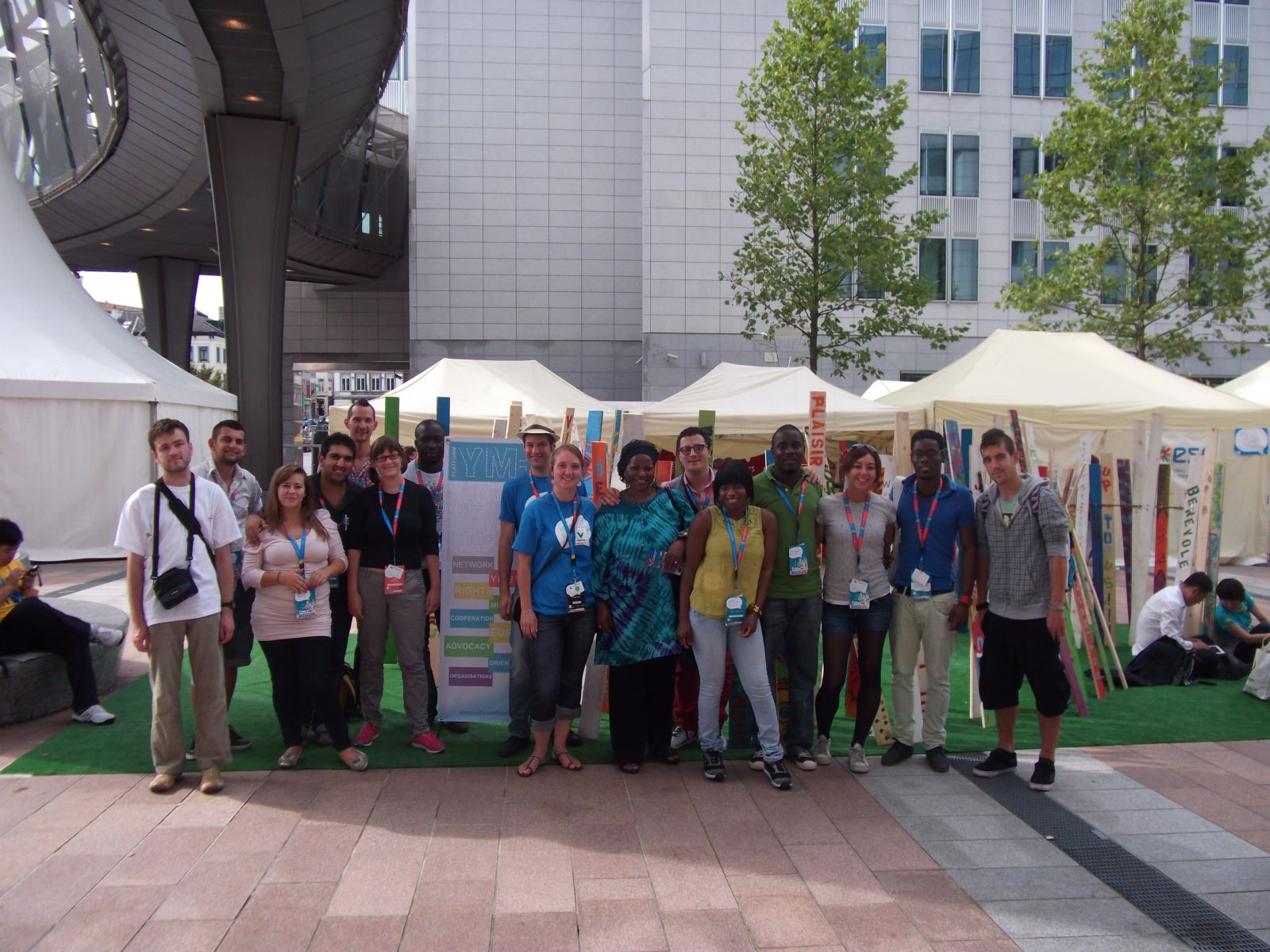Integrate Volunteering. Volunteers Integrate. Volunteering and migrants
 The platform Young Migrants organised a workshop on Saturday bringing together volunteers from migrant’s organisations from all over Europe. Together, they discussed the benefits and challenges of volunteer work for migrants.
The platform Young Migrants organised a workshop on Saturday bringing together volunteers from migrant’s organisations from all over Europe. Together, they discussed the benefits and challenges of volunteer work for migrants.
All of the participants stressed that volunteering does enhance the chances for integration. First, on a personal level. They emphasised that migrants can start to be who they are by volunteering. Volunteering can give migrants the self-confidence that migrants need to fight racism actively. It gives them the courage needed to challenge prejudices of the local population.
 The participants quoted many examples of the successes of migrant’s voluntary work. The Swiss Youth Council’s representative to the United Nations General Assembly this year was of migrant background, for instance. More and more migrant organisations are joining the Council as a result of its advocacy towards migrant integration, making the it a better mirror of the real society in Switzerland. In Ireland, volunteering activities from migrant organisations reached that Irish with migrant background were included in the traditional parties’ lists during the last elections – before, they had to run as independents. Together, the Irish Youth Council has set up a local radio station that channels the voices of young migrants.
The participants quoted many examples of the successes of migrant’s voluntary work. The Swiss Youth Council’s representative to the United Nations General Assembly this year was of migrant background, for instance. More and more migrant organisations are joining the Council as a result of its advocacy towards migrant integration, making the it a better mirror of the real society in Switzerland. In Ireland, volunteering activities from migrant organisations reached that Irish with migrant background were included in the traditional parties’ lists during the last elections – before, they had to run as independents. Together, the Irish Youth Council has set up a local radio station that channels the voices of young migrants.
However, many challenges remain. In many European Countries – for instance Portugal or Ireland – young people of immigrant background do not even have the right to vote in local elections. In many places, young migrant’s organisations are not recognised by government agencies and do not receive any kind of support, in spite of the important work they do. In Austria, migrant youth often do not mix with local young people, because local families prefer to send their children to private schools. In Germany, thousands of children from Roma families are menaced of deportation to Kosovo, a country they have left 15 years ago and of which they do not speak any local language. A participant from Georgia spoke about the mounting tensions in Georgian society against the liberal immigration policy. For him, this is because the routes for illegal migration and human trafficking are shifting further north from the Greek-Turkish border, with dramatic consequences (many parts of the Georgian and Turkish borders still have landmines). The dramas happening at the border create a further attitude against immigration and migrants within Georgia.
However, the workshop ended on a positive note. Many participants felt that through advocacy from migrant youth organisations, attitudes towards young people from migrant background are shifting for the better. Volunteering can be a key for exchange and understanding. A Nigerian participant told about his experiences at Schiphol airport (in the Netherlands) and in Ukraine, where his mere presence as a volunteer was received with much surprise by the local population and the border police. Migrant organisations have three key tasks: integrating themselves, helping newcomers to integrate, and finally, help their own people at home. It should not be forgotten that the engagement of many migrants in Western countries is tremendously important for their families and friends in their countries of origin.
Post Blog category:
